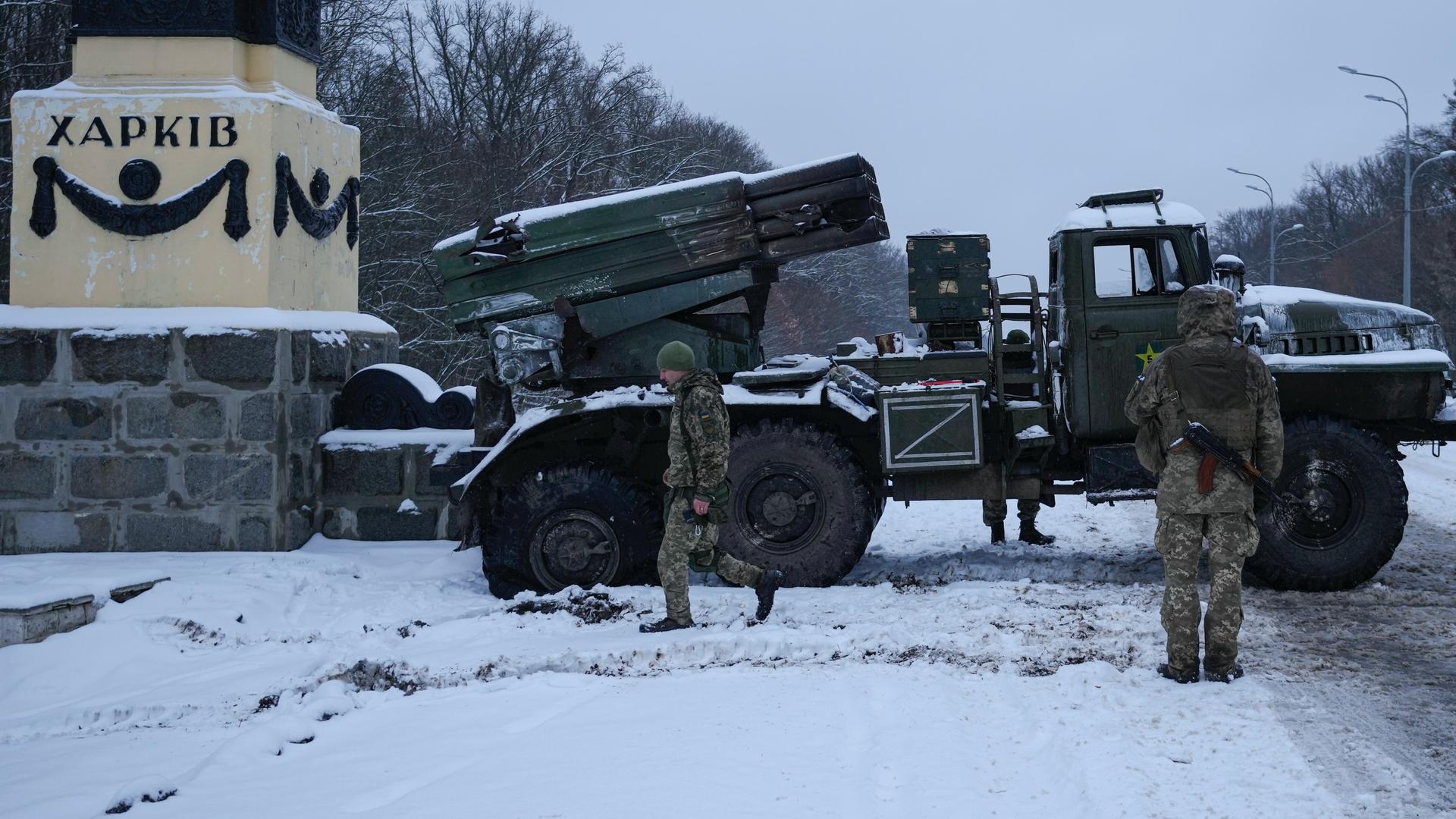When Russians woke up on Thursday morning, the news that President Vladimir Putin was bombing Ukraine came as a shock for many.
Thousands of Russians turned out for anti-war protests in more than 50 cities, including Moscow, St. Petersburg and Pushkin.
In this video, posted to social media by a Wall Street Journal reporter, protesters in Moscow quietly chant “No to War.”
About 1,400 Russians were arrested overnight in anti-war rallies that cropped up across the country. Despite the Kremlin’s chokehold on Russia’s mainstream media sources, a fair number of Russians do not support the war — some even have family and friends in Ukraine.
“In the middle of the 21st century, you never expected to have this, really. You never expected. And my heart goes out to people in Ukraine who I know, who I don’t know — who are subjected to such suffering.”
“In the middle of the 21st century, you never expected to have this, really. You never expected. And my heart goes out to people in Ukraine who I know, who I don’t know — who are subjected to such suffering,” one woman from a city in central Russia told The World.
“I’m suffocating with a feeling of shame and remorse for the government of my country, the government that I haven’t voted for,” she added. “I feel alienated from a lot of my compatriots who support the government.”
Related: Russia attacks Ukraine; peace in Europe ‘shattered’
Most Russian sources in this story are not being named for security reasons. Criticizing the government in Russia can result in arrest, community service or even jail time — so The World asked people to send voice notes over encrypted messaging services.
Around 170 journalists and experts signed a petition against the war and thousands more joined petitions online.
“It was like nightmare, I couldn’t believe it until [the] last moment. It was like something beyond consciousness. Fortunately, immediately colleagues and friends began to gather signatures,” an independent journalist told The World.
“We need peace and many Russian people stand for peace. We do not think Ukrainian people are our enemies, or that Ukraine is an enemy state.”
Meanwhile, on Russian television, broadcasters stuck to the government’s talking points, avoiding any pictures or mentions of casualties — using Putin’s description of the invasion: “a military operation for the demilitarization and denazification of Ukraine.”
Related: How effective are sanctions against Russia?
“Whoever tries to hinder us, or threaten our country or our people, should know that Russia’s response will be immediate and will lead you to consequences that you have never faced in your history,” Putin said in a Feb. 24 speech outlining his plans for the war.
Though many Russians get their news from mainstream channels, this particular war is difficult for many to support, said Oleg Ignatov in Moscow, a senior analyst for the Crisis Group.
“There are a lot of Russian nationalists who don’t support the war against Ukrainians because, for them, Ukraine is a brother nation.”
“There are a lot of Russian nationalists who don’t support the war against Ukrainians because, for them, Ukraine is a brother nation,” Ignatov said.
Others do support Putin’s territorial ambitions.
“Most of the people who support this war, they want to see Russia as a great power,” Ignatov said. “And they can’t accept that Ukrainians are sovereign, and they can’t accept that Ukrainians want to be part of Europe.”
Ignatov said that this invasion is a stark contrast to Russia’s annexation of Crimea in 2014. Back then, Putin tried very hard to get public opinion on his side. This time, he doesn’t seem to care, Ignatov said.
“Crimea was a matter of unity, and this war is a matter of division,” Ignatov said, adding, “And I absolutely believe that this war will divide Russian society.”
